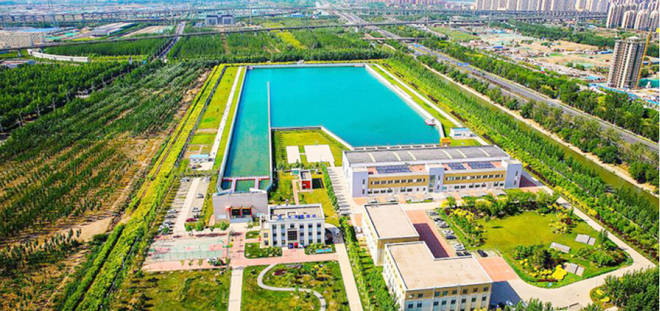China replenishes 30 rivers through water diversion project
China, through the central route of the South-to-North Water Diversion Project, has replenished 30 rivers. A report by China.org.cn said the 30 rivers were replenished with around 870 million cubic litres (cl) of water in northern China to tackle water scarcity and environment problems. According to the report, the process which started in April this […]


China, through the central route of the South-to-North Water Diversion Project, has replenished 30 rivers.
A report by China.org.cn said the 30 rivers were replenished with around 870 million cubic litres (cl) of water in northern China to tackle water scarcity and environment problems.
According to the report, the process which started in April this year, has directed 467 million cl to Henan Province, 351 million cl to Hebei Province and 47 million cl to Tianjin Municipality.
It said the diversion had helped to address water scarcity along the route, including the Baihe, Qinghe and Tuotuo rivers.
“As a result, rivers, lakes and wetlands along the route saw larger volumes of water, the ecological environment in the region was markedly improved and the underground water level also increased,” the report said.
It further said, as a major infrastructure project of national strategic importance, the water diversion project had not only guaranteed water supply in northern China, but also brought about huge ecological benefits.
“In Henan Province, the project has replenished 18 rivers in 12 cities, including Zhengzhou, Nanyang and Jiaozuo, brought in greater volumes of water in wetlands and reservoirs and improved water quality in the area,” it said.
In Hebei Province, the work covered 11 rivers in seven cities. A total of 112 million cl of water was directed to the Baiyangdian Lake, one of the largest bodies of water in northern China, improving its environment and water quality.
According to official figures, the surface area of water in Xushui District has increased by around 430,000 square metres since the replenishment progress began and the level of groundwater has risen by an average of 0.96 metres.
